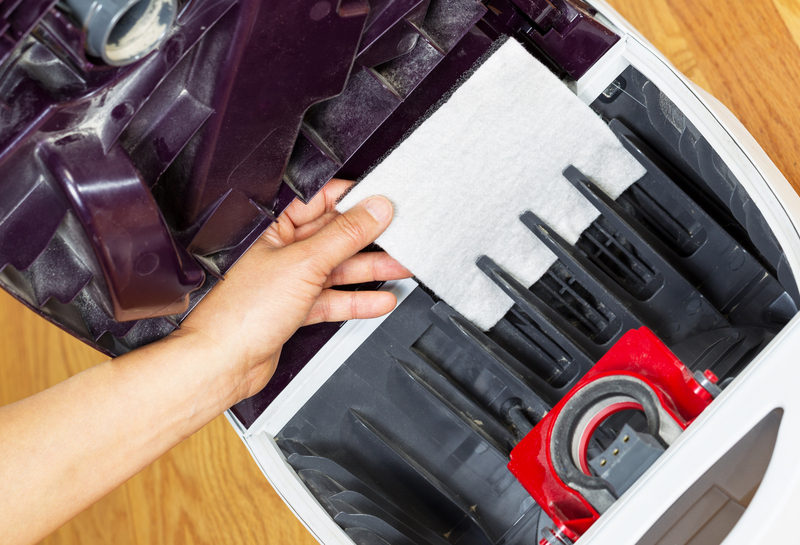Sustainable Cleaning Habits to Adopt
Posted on 11/09/2025
Sustainable Cleaning Habits to Adopt
In today's world, sustainability has emerged as a critical topic of discussion, driving individuals and organizations to rethink their consumption patterns. One area that deserves particular attention is our cleaning habits. Sustainable cleaning practices not only benefit the environment but also promote a healthier living space. This article delves into various sustainable cleaning habits you can adopt to make a significant impact.
Understanding Sustainable Cleaning
Sustainable cleaning goes beyond just the products you use; it encompasses your entire cleaning routine, from the tools and materials you use to the methods you employ. The objective is to minimize environmental impact, reduce waste, and maintain a clean, healthy living environment. Adopting sustainable cleaning habits can contribute to long-term environmental benefits and personal well-being.

Eco-Friendly Cleaning Products
One of the easiest ways to make your cleaning routine more sustainable is to switch to eco-friendly cleaning products. Conventional cleaning products often contain harmful chemicals that can be detrimental to both human health and the environment. Look for products that are biodegradable, non-toxic, and made with natural ingredients. Additionally, consider making your cleaning products at home using simple ingredients like vinegar, baking soda, and essential oils. These homemade solutions are not only effective but also cost-efficient and safe.
Reusable Cleaning Tools
Disposable cleaning tools, such as paper towels and single-use mop pads, contribute significantly to waste. Transitioning to reusable cleaning tools is a simple yet impactful sustainable cleaning habit. Microfiber cloths, for instance, are highly effective for various cleaning tasks and can be washed and reused multiple times. Reusable mop pads and washable sponges are also great alternatives to their disposable counterparts. By opting for reusable tools, you can reduce waste and save money in the long run.
Water Conservation
Water is a precious resource, and using it wisely is a key component of sustainable cleaning. Simple habits like turning off the tap while scrubbing dishes or using a bucket of water instead of a constantly running hose can make a significant difference. Additionally, consider using a high-efficiency washing machine and dishwasher, as they use less water and energy compared to conventional models. Educate your household members about the importance of water conservation and encourage them to adopt water-saving practices.
Energy-Efficient Cleaning Appliances
Energy-efficient appliances can significantly reduce your environmental footprint. When it's time to replace your old vacuum cleaner, washing machine, or dishwasher, look for models that have high energy efficiency ratings. These appliances not only consume less energy but also often come with features that enhance their cleaning performance. Regular maintenance of these appliances, such as cleaning filters and replacing worn-out parts, can also improve their efficiency and longevity.
Natural Air Fresheners
Many commercial air fresheners contain synthetic fragrances and chemicals that can negatively impact indoor air quality. Opting for natural air fresheners is a healthier and more sustainable choice. Baking soda, essential oils, and houseplants can effectively freshen the air without the need for artificial scents. Simmering a pot of water with citrus peels and spices or placing bowls of vinegar around the house are other simple and natural ways to eliminate odors. These methods not only improve indoor air quality but also create a pleasant and inviting atmosphere.
Mindful Consumption and Minimalism
Adopting a minimalist approach to cleaning products can contribute to sustainability. Often, we accumulate a plethora of specialized cleaning products that are rarely used and take up space. Simplifying your cleaning arsenal to a few versatile, multi-purpose products can reduce waste and make your cleaning routine more efficient. Practicing mindful consumption also means being conscious of the packaging and opting for products with minimal or recyclable packaging. Bulk buying and refilling containers can further reduce packaging waste.
Proper Disposal of Hazardous Waste
Improper disposal of hazardous cleaning products can have severe environmental consequences. Ensure that you properly dispose of any hazardous materials, such as bleach, ammonia, and other strong chemicals, according to local regulations. Many communities have designated hazardous waste disposal sites or collection days. Avoid pouring these substances down the drain or throwing them in the trash, as they can contaminate water sources and harm wildlife. Educate yourself and your household about the proper disposal methods to minimize environmental impact.

Regular Maintenance and Preventive Cleaning
Regular maintenance and preventive cleaning can reduce the need for intensive cleaning sessions that often require strong chemicals. Simple habits like wiping down surfaces daily, using doormats to minimize dirt entering the house, and addressing spills and stains promptly can keep your home clean with minimal effort. Establishing a routine maintenance schedule for appliances, such as cleaning oven spills immediately and regularly vacuuming refrigerator coils, can also extend their lifespan and maintain their efficiency.
Community Involvement and Advocacy
Beyond individual efforts, consider getting involved in community initiatives and advocating for sustainable practices. Join local environmental groups or participate in community clean-up events. Share your knowledge and experiences with friends, family, and neighbors to inspire them to adopt sustainable cleaning habits. Advocacy can also extend to supporting policies and businesses that prioritize environmental sustainability. By collectively working towards a more sustainable future, we can amplify our impact and create lasting change.
In conclusion, adopting sustainable cleaning habits is a practical and impactful way to contribute to environmental conservation and promote healthier living spaces. By making conscious choices in the products we use, the tools we employ, and the methods we adopt, we can make a significant difference. From choosing eco-friendly cleaning products and reusable tools to conserving water and energy, every small effort counts. Embrace these sustainable cleaning habits and inspire others to join you on this journey towards a cleaner, healthier, and more sustainable world.
Latest Posts
AGA Cookers vs. Rayburn Cookers
Choosing the Best Carpet for Your Home
Eliminating Grease Stains on Clothes





